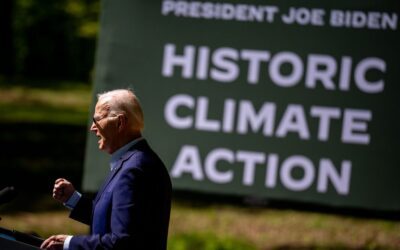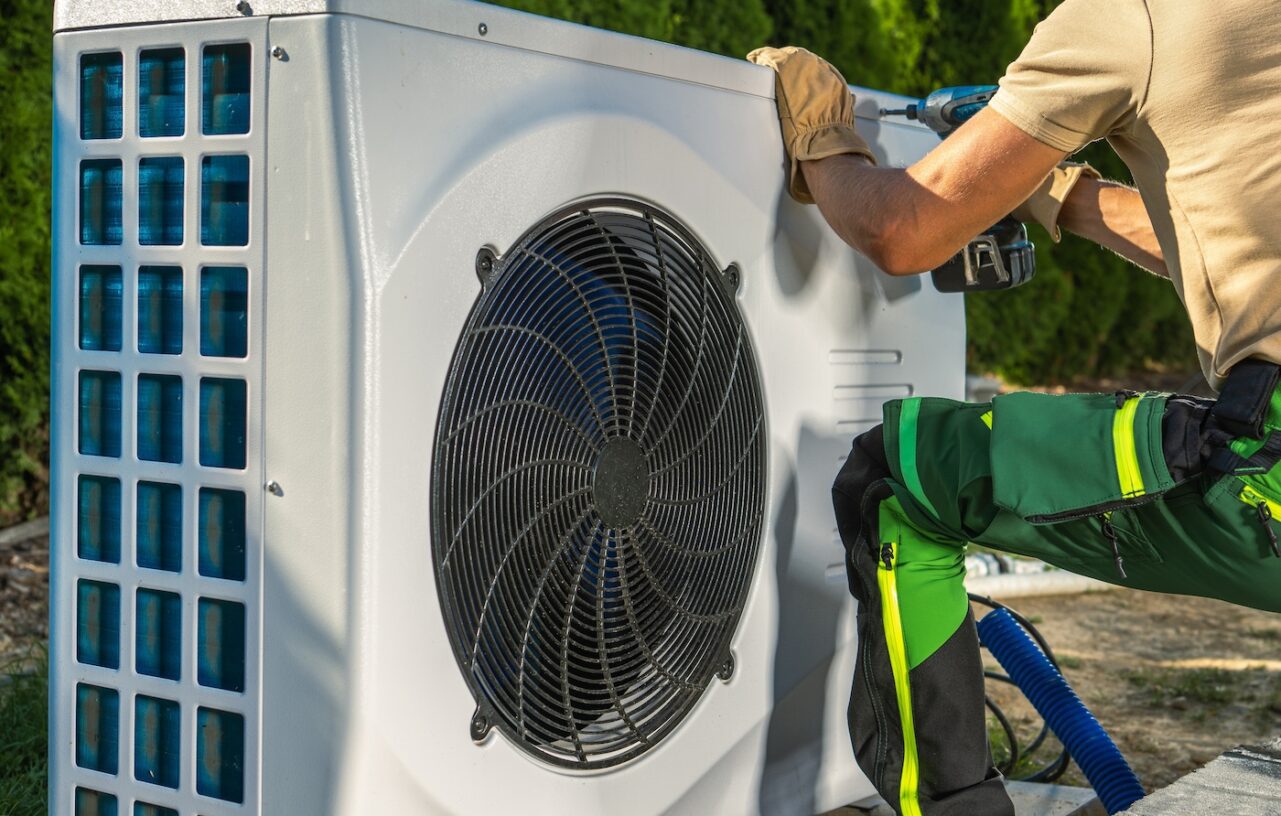
Heat pumps can significantly increase a home's energy efficiency for heating and cooling. The Inflation Reduction Act makes rebates and tax credits available for a wide range of energy efficiency upgrades. The projects not only lower utility bills but are good for the climate and create manufacturing and installation jobs. (Shutterstock)
It begins with assessing your home’s current energy use, planning improvements, then getting connected to the credits and rebates that can create good Wisconsin jobs, reduce bills, and improve the climate.
Wisconsin homeowners could soon start to see lower energy bills through projects that get their start with funding from the Inflation Reduction Act. The law, signed by President Joe Biden in 2022, will invest $369 billion over the next decade as part of a broad national strategy to combat climate change, including nearly $9 billion to help homeowners and residents with energy efficiency improvements that will create jobs and save households an estimated $1 billion per year.
Wisconsin is slated to get about $150 million of that household energy pool, evenly-divided between two approaches.
The first is called HOMES and focuses on whole-home efficiency rebates for energy improvements that include things like improved insulation, adding solar, installing a heat pump, and so on. The value of the rebates is connected to how much a household will save after making the changes. According to one report, the program is worth up to $8,000 for households that cut energy use by at least 35%.
The other program is called HEAR, for Home Electrification Appliance Rebates. Like the name says, its rebates are focused on energy efficient electric replacements, ranging from $840 for a new electric/induction stove or clothes dryer to $2,500 for new, more efficient wiring and $8,000 for a heat pump system. Rebates vary by income so that low and moderate income households won’t be left behind in future energy savings.
As these rebates begin to be distributed, Wisconsin companies and groups are stepping forward to help homeowners.
Every home’s a little bit different than the other,” said Kevin Kane, chief economist for Green Homeowners United. “What we’ll do is come in and do an energy assessment of your house. You actually can get a federal tax credit just for getting an energy assessment. We’ll measure your windows, measure your insulation, and perform a series of diagnostic tests.”
“And with that,” Kane continued, in an UpNorthNews Radio interview, “we’ll run an economic model to figure out, ‘Hey, if I put this much money into insulating my attic, how much might I expect to get back? If I can reduce my energy use by 20% or more, how much federal incentive can I get for that? What sort of tax credits are available for this?’ And together we try to come up with a proposal for you that says, ‘How do I accomplish the goal of my house to make it more comfortable to fight climate change, to save energy? And how do I leverage as much federal or state incentive as I can to make it affordable?’ And some people are really surprised by what they learn for their home.”
Once homeowners have a project planned, Green Homeowners United can execute those plans with locally-trained workers.
“[We] create good union jobs in the residential sector, helping people fight climate change,” Kane said. “Especially for workers of color, in the communities that they live, being able to provide for [benefits] like vision, pension, and dental. And here’s the nice thing: You get homes in every single community. We have this ability, thanks to things like the Inflation Reduction Act [and Focus On Energy], to grab the bull by the horns, to take on climate change, but also to create jobs in communities all over the state.”
The Focus On Energy program has a tool that homeowners can use to search by zip code to find an energy assessor in their geographic area.
The Green Homeowners United website also has an online calculator that uses location, income, and family size to show the possible extent of rebates and state tax credits.
“I’m very excited for what’s coming,” Kane said. “And I do have to thank the Biden administration for all that’s happening.”
Support Our Cause
Thank you for taking the time to read our work. Before you go, we hope you'll consider supporting our values-driven journalism, which has always strived to make clear what's really at stake for Wisconsinites and our future.
Since day one, our goal here at UpNorthNews has always been to empower people across the state with fact-based news and information. We believe that when people are armed with knowledge about what's happening in their local, state, and federal governments—including who is working on their behalf and who is actively trying to block efforts aimed at improving the daily lives of Wisconsin families—they will be inspired to become civically engaged.

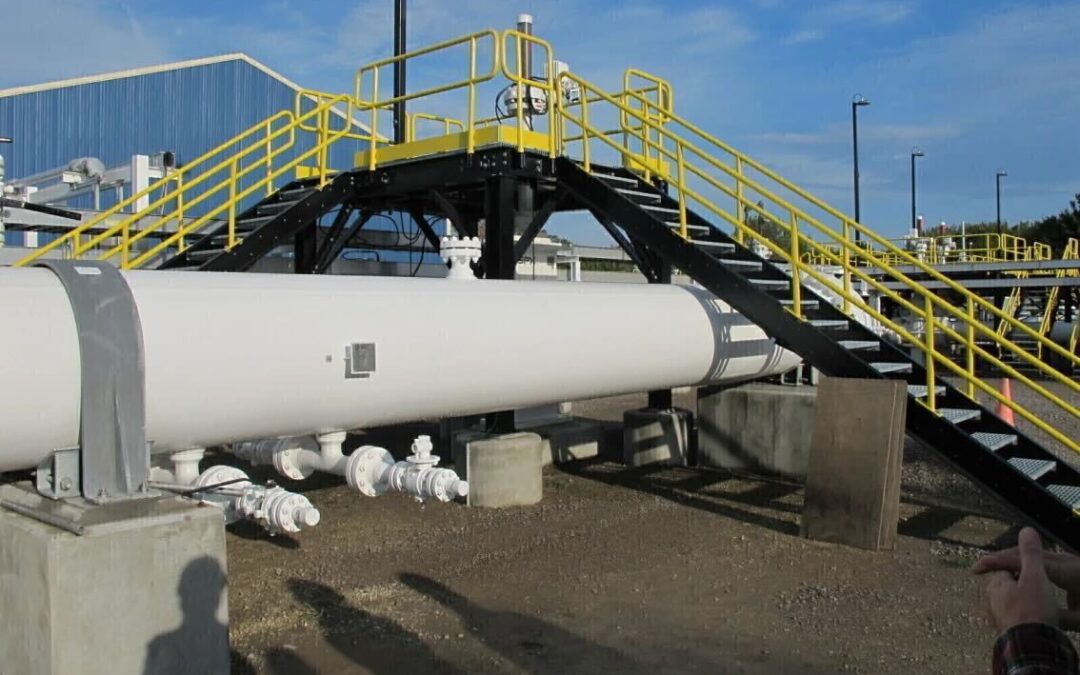
Wisconsin agency issues first round of permits for Enbridge Line 5 reroute around reservation
MADISON, Wis. (AP) — Enbridge’s contentious plan to reroute an aging pipeline around a northern Wisconsin tribal reservation moved closer to reality...
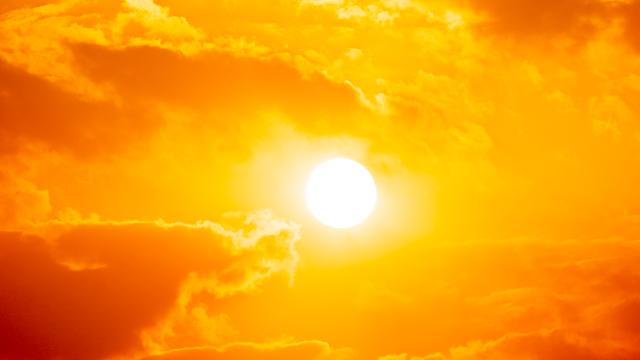
Think this is hot?! The number of 90+ days is expected to triple in Wisconsin
We expect summers to be hot. But dangerous temperatures are an entirely different beast. Every year, approximately 1,300 Americans die from exposure...
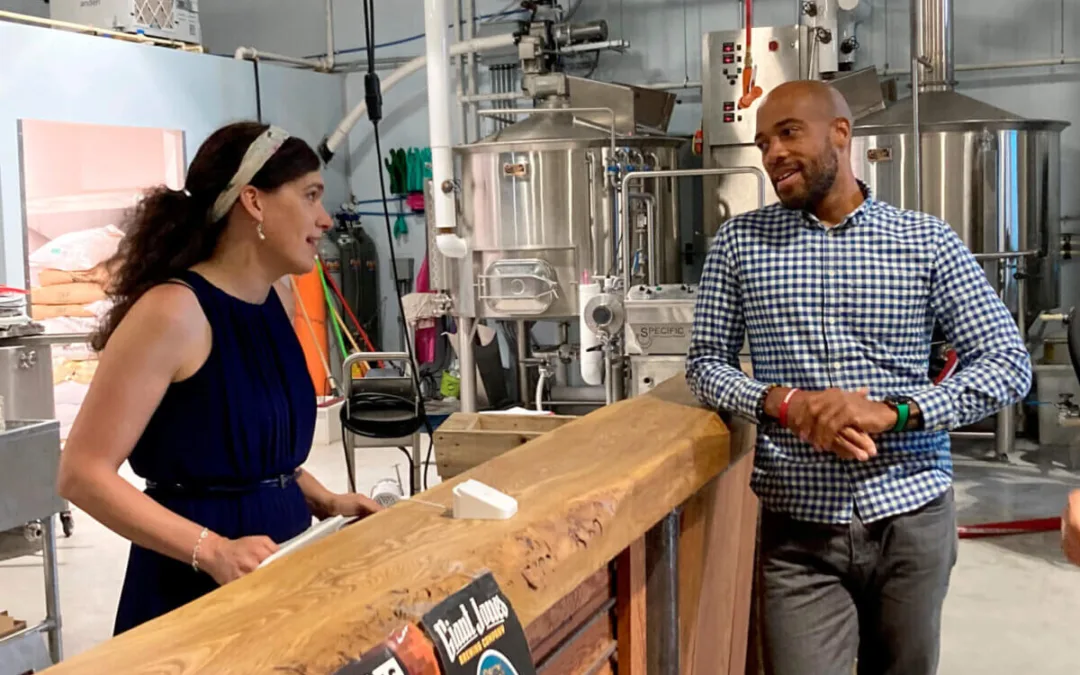
Wisconsinites need to know how they can benefit from Biden’s clean energy efforts. Mandela Barnes is on it.
The one-time head of the governor’s climate change task force now helps connect Wisconsinites to historic levels of funding for energy efficiency...
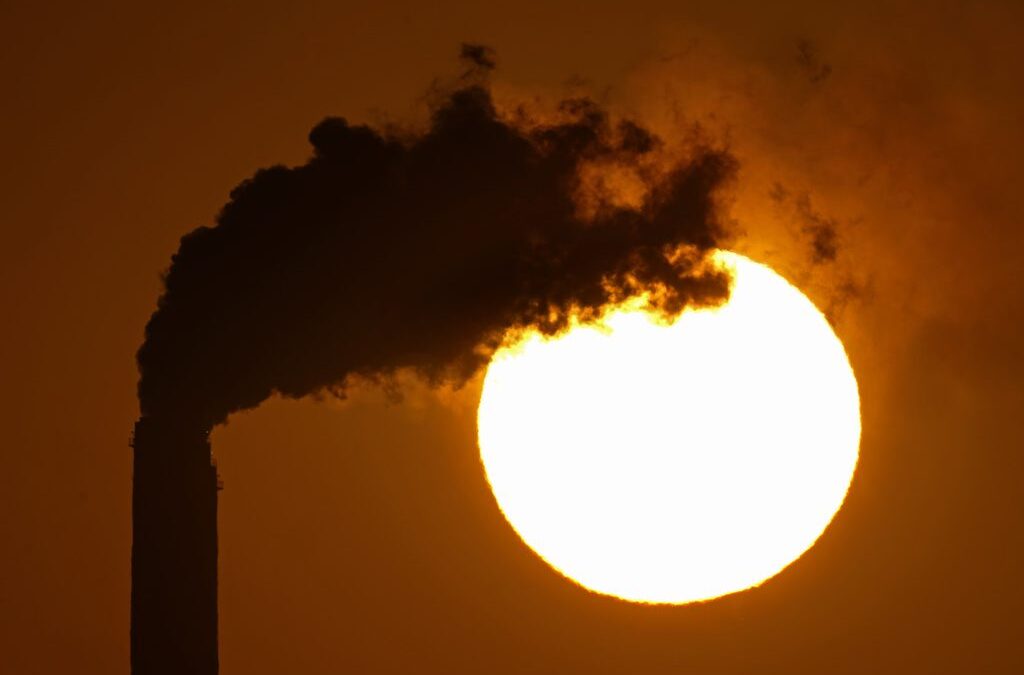
Biden’s EPA announces rules to slash coal pollution, speed up clean energy projects
The Biden administration last month announced a set of four final rules designed to reduce harmful pollution from power plants fired by fossil...



